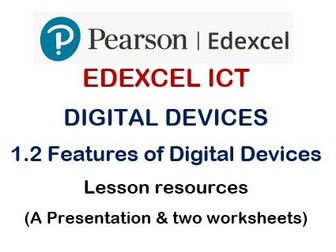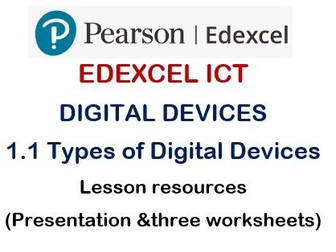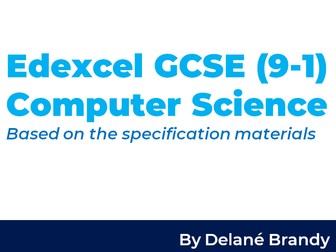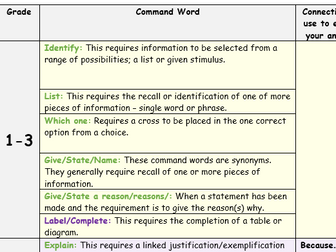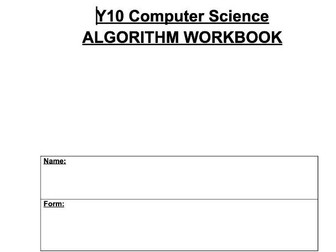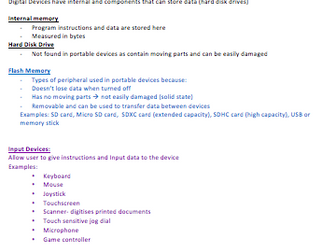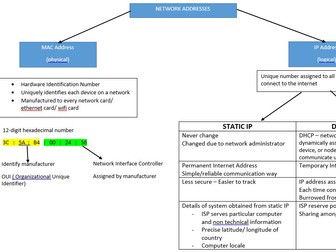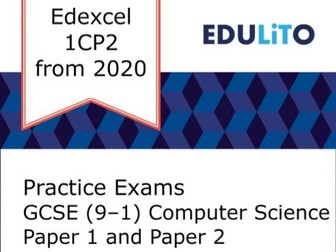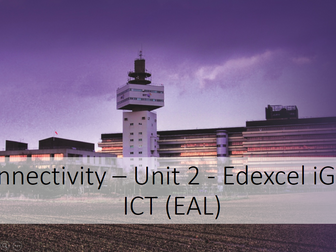
Edexcel ICT: Features of Digital Devices
Features of digital devices is a teacher’s resource that covers Pearson Edexcel Specification on ICT, Unit 1, sub-topic 1.2. The resource consists of two student’s self-paced activity sheets and a lesson presentation of twenty slides. It is suitable for Year 10 and 11 GCSE and IGCSE students and it covers the following key terms – Portability, Performance, Storage, User Interface, Connectivity, Media Support, Energy consumption, Expansion capability and Security features.
Students will learn the features of identified digital devices using the slides and further research activities in a self-paced approach.
This interactive resource is a self-paced learning material that engages students with all they need to know in the sub-topic. It comprises two worksheets and a presentation of twenty slides. The worksheets are suitable for the students’ notes upon completion.
